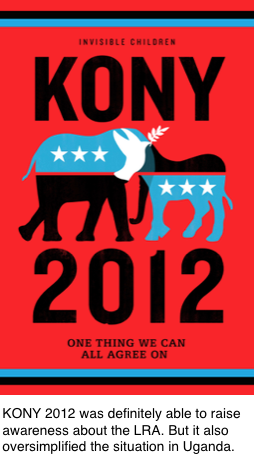What's wrong with the ALS Challenge, KONY 2012, and #BringBackOurGirls
- Nov 21, 2014
- 4 min read
(This article is long, out of date, and questions public opinion. And that’s exactly the point)
The ice has melted, the buckets have been stacked, and the trend has passed. No longer are our Facebook news feeds filled with videos of people chucking ice cold water over their heads in an attempt to raise awareness for Amyotrophic lateral sclerosis, a neurodegenerative disease that eventually results in the total paralysis of its patients.
When I first set out to write this article, I was worried that as less and less ice bucket challenges swept through my newsfeed, this topic was now irrelevant, unable to capture anyone’s interest.
But it is for the aforementioned reason, and a few others, that I decided to write this piece.
Firstly, because I believe that charity should be a personal decision. Now I do believe that the prevention of the ALS disease is one that is extremely admirable and to be applauded. But the thing I noticed with the ice bucket bucket trend and the challenge to ‘donate or toss an ice bucket above your head’ was that it doesn’t leave you a lot of room to say no. Whether it’s peers berating you ‘for being a wimp’, as one y11 found, or simply ‘the huge component of peer pressure’, as an anonymous survey respondent stated, it’s very difficult to refuse a challenge.
Something that occurs with most viral trends is the lessened accountability in comparison to other forms of advocation, like say an awareness campaign at school. When everybody in your newsfeed is updating their pictures to the ‘Kony 2012’ campaign or completing the ALS challenge, it’s much easier to participate as well because you’re less likely to have your stance questioned by the general public; arguments against your particular stance aren’t just targeted at you, but the massive amounts of people that came up with the campaign in the first place. The weight of the criticism is distributed amongst thousands.

And this lessened accountability makes us much less inclined to go away and research the cause in question. Kony 2012, for instance, seemed to perpetuate the myth that Joseph Kony resided in Uganda during the release of the Invisible Children’s video and that the majority of the crimes committed by the LRA were being committed in 2012, when in reality both those facts were false. It’s important to make sure that we have the facts before committing ourselves to a particular cause or activist movement, so that we take a stance that truly represents what we believe in, that it is truly an informed opinion.

Furthermore, at times online movements result in the gross oversimplification of facts to make them compatible with social media (such as Twitter’s 140 character limit) or to appeal to the attention spans of the online community today. The issue of Uganda concerns a long and complex history of violence, including the use of force by President Museveni against innocent citizens, sweeping up ethnic Acholi communities and spurning resistance in the North in the form of the Lord’s Resistance Army. The former part of the issue seemed to be left out by the social media storm that followed, neglecting valuable context that is essential when it comes to demanding action from leaders. Context that ensures we don’t demand actions that are unjustified or ill-informed.
And lastly, the nature of most online movements is short lived. I’ve personally gotten swept up in the tide of international outrage and the strength that can come from thousands of voices, but I’ve found myself guilty of forgetting these issues after just a few weeks; there’s always a Frozen cover or a hilarious Jennifer Lawrence gif to capture my interest. #BringBackOurGirls was one of the most trending hashtags 6 months ago, aiming to release 276 Nigerian girls kidnapped by the Boko Haram in the town of Chibok. Our widespread condemnation spurned countries like France, Canada and the United States to offer assistance to Nigeria. But to date, no action, political or military, has been taken. It seems as though all but the town of Chibok have forgotten the 276 girls.
But I’m not inherently against online movements at all. In fact, I believe quite the contrary. I believe it’s a tool that is extremely effective in raising awareness and funds, and drawing to light issues like Amyotrophic Lateral Sclerosis, problems which don’t generally gain the world center stage. I’ve personally donated to the ALS Association; and I know I wouldn’t have done so without the internet campaign. In fact, 42% of RCHK students didn't know about ALS before the challenge went viral. I also can’t say I would’ve researched the issues in Uganda and Nigeria had it not been for the aforementioned campaigns. I simply believe that online activism can be executed better; by ensuring that we do a little extra research before ‘sharing’ things and perpetuating myths, that we present the full picture of the issue and not just the oversimplified version, and that we do not merely forget about it once the media wave has passed. Online activism is perhaps one of the most powerful tools we have as a global community. When we use it right.
Note: In the interest of full disclosure, the survey results from over 200 RCHK students can be found here
Sarika Mahbubani



















Comments